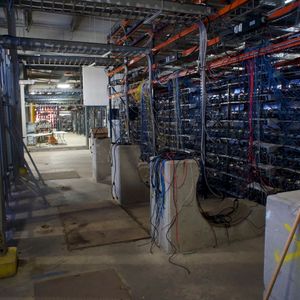coinpedia
2025-02-13 13:37:12
U.S. States Push for Bitcoin Reserves Could Trigger $23 Billion in Purchases: Matthew Sigel
Meist gelesene Nachrichten
Lesen Sie den Haftungsausschluss : Alle hierin bereitgestellten Inhalte unserer Website, Hyperlinks, zugehörige Anwendungen, Foren, Blogs, Social-Media-Konten und andere Plattformen („Website“) dienen ausschließlich Ihrer allgemeinen Information und werden aus Quellen Dritter bezogen. Wir geben keinerlei Garantien in Bezug auf unseren Inhalt, einschließlich, aber nicht beschränkt auf Genauigkeit und Aktualität. Kein Teil der Inhalte, die wir zur Verfügung stellen, stellt Finanzberatung, Rechtsberatung oder eine andere Form der Beratung dar, die für Ihr spezifisches Vertrauen zu irgendeinem Zweck bestimmt ist. Die Verwendung oder das Vertrauen in unsere Inhalte erfolgt ausschließlich auf eigenes Risiko und Ermessen. Sie sollten Ihre eigenen Untersuchungen durchführen, unsere Inhalte prüfen, analysieren und überprüfen, bevor Sie sich darauf verlassen. Der Handel ist eine sehr riskante Aktivität, die zu erheblichen Verlusten führen kann. Konsultieren Sie daher Ihren Finanzberater, bevor Sie eine Entscheidung treffen. Kein Inhalt unserer Website ist als Aufforderung oder Angebot zu verstehen


















